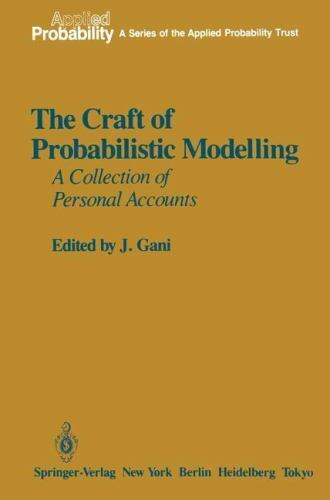Go back


The Craft Of Probabilistic Modelling A Collection Of Personal Accounts(1st Edition)
Authors:
N. T. J. Bailey

Cover Type:Hardcover
Condition:Used
In Stock
Include with your book
Free shipping: April 04, 2024Popular items with books
Access to 3 Million+ solutions
Free ✝
Ask 10 Questions from expert
200,000+ Expert answers
✝ 7 days-trial
Total Price:
$0
List Price: $3.15
Savings: $3.15(100%)
Book details
ISBN: 9780387962771, 0387962778
Book publisher: Springer
Get your hands on the best-selling book The Craft Of Probabilistic Modelling A Collection Of Personal Accounts 1st Edition for free. Feed your curiosity and let your imagination soar with the best stories coming out to you without hefty price tags. Browse SolutionInn to discover a treasure trove of fiction and non-fiction books where every page leads the reader to an undiscovered world. Start your literary adventure right away and also enjoy free shipping of these complimentary books to your door.
The Craft Of Probabilistic Modelling A Collection Of Personal Accounts 1st Edition Summary: This book brings together the personal accounts and reflections of nineteen mathematical model-builders, whose specialty is probabilistic modelling. The reader may well wonder why, apart from personal interest, one should commission and edit such a collection of articles. There are, of course, many reasons, but perhaps the three most relevant are: (i) a philosophicaJ interest in conceptual models; this is an interest shared by everyone who has ever puzzled over the relationship between thought and reality; (ii) a conviction, not unsupported by empirical evidence, that probabilistic modelling has an important contribution to make to scientific research; and finally (iii) a curiosity, historical in its nature, about the complex interplay between personal events and the development of a field of mathematical research, namely applied probability. Let me discuss each of these in turn. Philosophical Abstraction, the formation of concepts, and the construction of conceptual models present us with complex philosophical problems which date back to Democritus, Plato and Aristotle. We have all, at one time or another, wondered just how we think; are our thoughts, concepts and models of reality approxim&tions to the truth, or are they simply functional constructs helping us to master our environment? Nowhere are these problems more apparent than in mathematical model ling, where idealized concepts and constructions replace the imperfect realities for which they stand.
Customers also bought these books
Frequently Bought Together
Top Reviews for Books
R goi
( 5 )
"Delivery was considerably fast, and the book I received was in a good condition."










